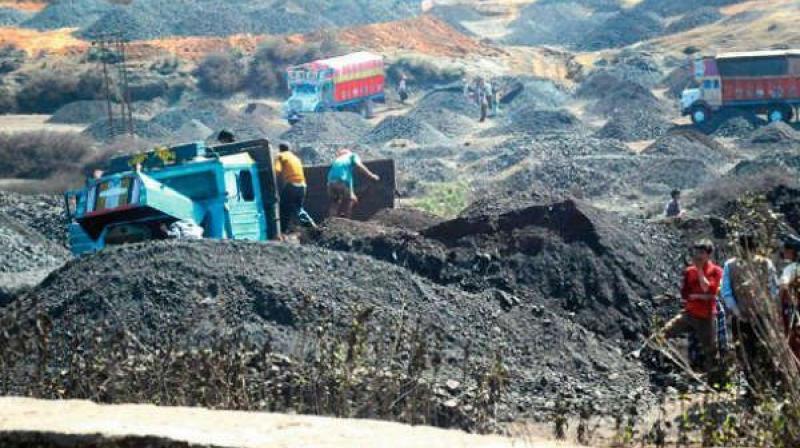UN ban on coal exports by Pyongyang taking toll on N Korea-China trade
For years, coal trade was a lucrative earner for Pyongyang; its main ally China imported tonnes of coal worth nearly $1.2 billion in 2016.

Pyongyang: A three-metre-high metal fence topped with razor wire in a North Korean port marks the front line of the United Nations' ban on coal exports by Pyongyang.
A mountain of North Korean coal, which would once have been bound for China - is piled up on one side of the barrier in Rajin harbour, stranded by the interdiction. On the very next dock, around two million tonnes of Russian coal has come in by train and been shipped on to China in 2017 by Russian port operator RasonConTrans.
Its activities are specifically excluded from the UN Security Council's sanctions resolutions - but attempts have been made to use it as a way to bypass the restrictions. "They asked but we said no, we don't do it," said RasonConTrans' deputy director Roman Minkevich.
The black mounds on the neighbouring wharf were evidence his firm was complying with the rules, he added.
"Behind the fence it's Korean coal, it's under sanctions now so it's still here," he told. He declined to elaborate on the source of the requests.
"People, different people," he said. The UN Panel of Experts on North Korea said in its mid year report that Pyongyang has been "deliberately using indirect channels to export prohibited commodities".
For years the coal trade was a lucrative earner for Pyongyang - its main ally and key economic partner China imported 22 million tonnes worth nearly $1.2 billion in 2016.
But while Beijing says North Korean imports have come to a halt, RasonConTrans' business is booming.
Since starting operations in 2015 its volumes have doubled each year, and Minkevich is targeting three million tonnes next year, with a goal of five million in future. It has between three and six ship movements a month at its pier -- number 3 in the port, which can take vessels up to 180 metres long -- loading 50,000 tonnes of coal on each, most of them heading for Shanghai.
Over a hill at the back of Rajin town stands a sprawling, disused oil refinery, originally built to process crude from the Soviet Union, and in the days of Communist brotherhood provided Pyongyang with cheap or free materials.
Locals blame sanctions for the closure but it has been inactive for years, its throttled chimneys standing sentinel over an unfulfilled economic dream. Two large bronze statues of the North Korea's founder Kim Il-Sung and his son and successor Kim Jong-Il look out over Rajin.
Despite the looser economic rules applying in the area, the town is bedecked with propaganda slogans seen throughout the Democratic People's Republic of Korea, as the country is officially known.
Using North Korean labour -- North Korean women are particularly skilled crane operators, Minkevich notes, probably due to their care in performing repetitive tasks -- costs at Rajin are 30 to 40 per cent cheaper than at Russian ports.

